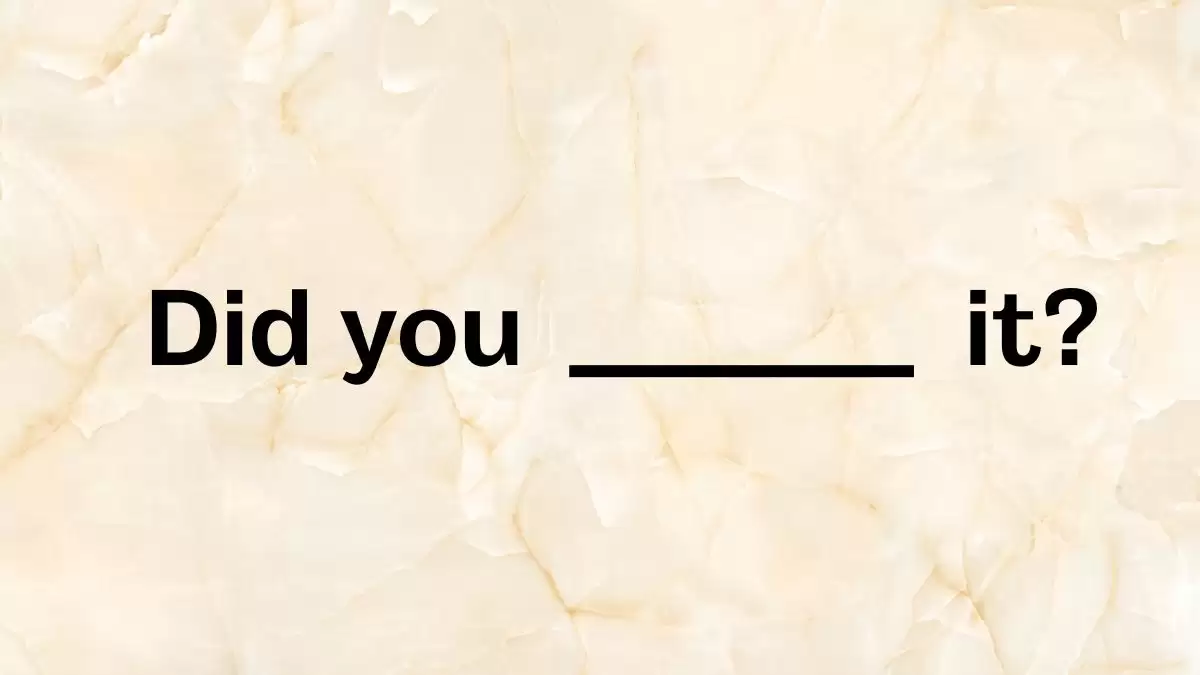Can you find the answers to the five grammar questions in this puzzle?
Explore the world of grammar puzzles. These puzzles engage readers by presenting situations that require grammar skills and creative thinking. They keep your mind active and may help reduce stress. There are many grammar challenges to enjoy, including the ones that follow. This challenge is a little tricky and is for those who are really good at grammar and notice the little things.
- Brain Teaser Matchstick Riddles – Move Just 1 Stick To Form 6 Squares
- Brain Teaser: Add 2 Sticks to Fix the Equation 1+1=6 I Tricky Matchstick Puzzle
- Observation Brain Test: If you have Hawk Eyes Find the word Tone in 15 Secs
- Visual Test: If you have Hawk Eyes find the Word Saws among Sawn in 10 Secs
- Observation Brain Test: If you have Keen Eyes Find the Word Ring 12 Secs
When you master this type of puzzle, you get more than just fun, it provides you with skills that are useful in many aspects of life. Although the puzzle may seem difficult at first, your goal is to find a solution that fully follows the rules of grammar and uncover the secrets of the puzzle. The following sections explain this syntax dilemma in detail and show you how to solve it.
You are watching: Can You Figure Out The Answers to The Five Grammar Questions in This Puzzle?
1. Have you ___?
The word “found” is used in the question “Did you find it?” Common in English because it asks about the action of finding or locating something. In this sentence, “find” is a verb used to ask whether the person being asked has successfully located or discovered a specific object or information. It’s a simple and common way of asking someone if they’ve encountered something, and it’s part of everyday conversational language.

2.This is ___ book
Using “my” in the sentence “This is my book” is an example of a possessive pronoun. In this case, “my” means ownership or possession. It tells us that the book belongs to the person speaking, making it clear that the book belongs to them. In English, possessive pronouns like “my” are often used to indicate to whom something belongs. They help clarify ownership and are an important part of everyday language.

3.She ___ a car
The use of “has” in the sentence “She has a car” is a verb form used to indicate that someone owns or owns something. In this case, “has” is a form of the third person singular verb “have” and refers to the woman mentioned. The verb tense “has” is used to indicate that she is the owner of the car. It is a fundamental part of English grammar and helps express ownership or possession.

4. My sister is ___ than me
The word “tall” in the sentence “My sister is taller than me” is the comparative form of the adjective “tall”. In English grammar, we use the comparative form when we want to compare the height or any quality of two people or things. In this case, “taller” is used to mean that your sister is taller than you. It helps express the idea that there is a height difference between you and your sister. In English, comparison is important for making such distinctions and comparisons between people, objects, or qualities.

See more : Brain Test: If you have Hawk Eyes Find the Word Cacao in 15 Secs
5. Hello everyone
The word “is” in the sentence “Everyone is fine” is the present tense form of the verb “to be”. In this sentence, “is” is used to describe the current state or condition of “everyone,” meaning everyone referred to. It indicates that everyone is in good health or feels good at this moment. “Is” is a linking verb that connects the subject “everyone” with the complement “fine” that describes their state. This sentence demonstrates the use of “is” to express the current situation or condition of a group of people. It is a basic element of English grammar and is used to convey information about the current state or existence of a thing or person.

Calculate 7436 ÷ 54 + 142 x 5 – 2178 ÷ 48=?
To find the solution, remember the order of operations. Division and multiplication proceed from left to right: 7436 ÷ 54 equals 137, and 2178 ÷ 48 equals 45. The equation becomes 137 + 142 x 5 – 45. Now, perform multiplication and addition/subtraction from left to right: 142 x 5 equals 710, and 137 + 710 equals 847. Therefore, the solution is 847.
Whether you’re looking for a quick way to improve your thinking or a more in-depth challenge, NEWSTARS Education has answers for everyone. With our puzzles and brain teasers you can develop your creative thinking skills and have fun.
trend
Can you calculate 7319 ÷ 51 + 139 x 6 – 2265 ÷ 53=?
In this problem, order of operations applies. Division and multiplication proceed from left to right: 7319 ÷ 51 equals 143, and 2265 ÷ 53 equals 43. The equation becomes 143 + 139 x 6 – 43. Next, multiply, add and subtract from left to right: 139 x 6 equals 834, and 143 + 834 equals 977. Therefore, the answer is 977.
Disclaimer: The above information is for general information purposes only. All information on this website is provided in good faith, but we make no representations or warranties, express or implied, as to the accuracy, adequacy, validity, reliability, availability or completeness of any information on this website.
Source: https://truongnguyenbinhkhiem.edu.vn
Category: Brain Teaser
